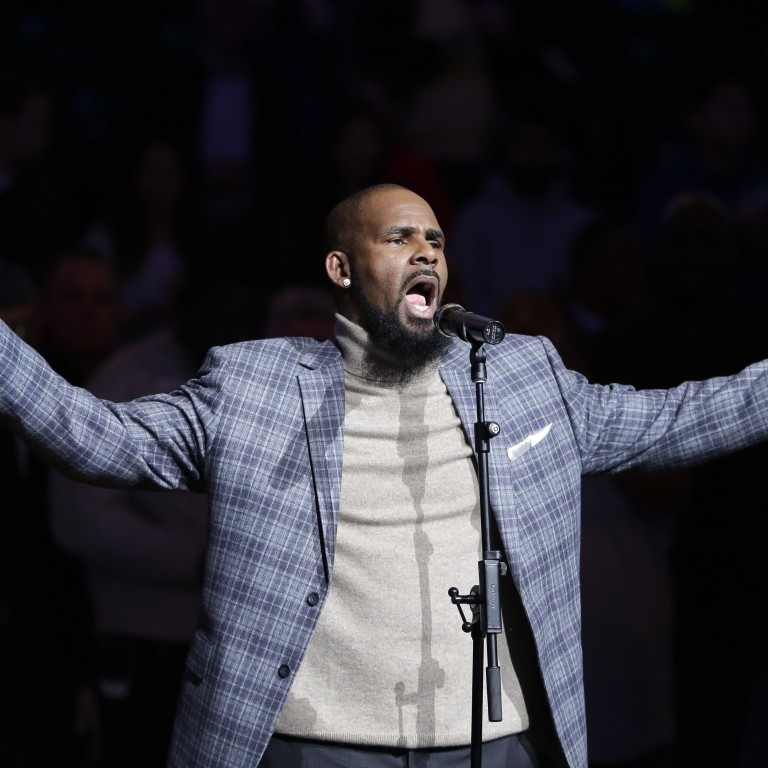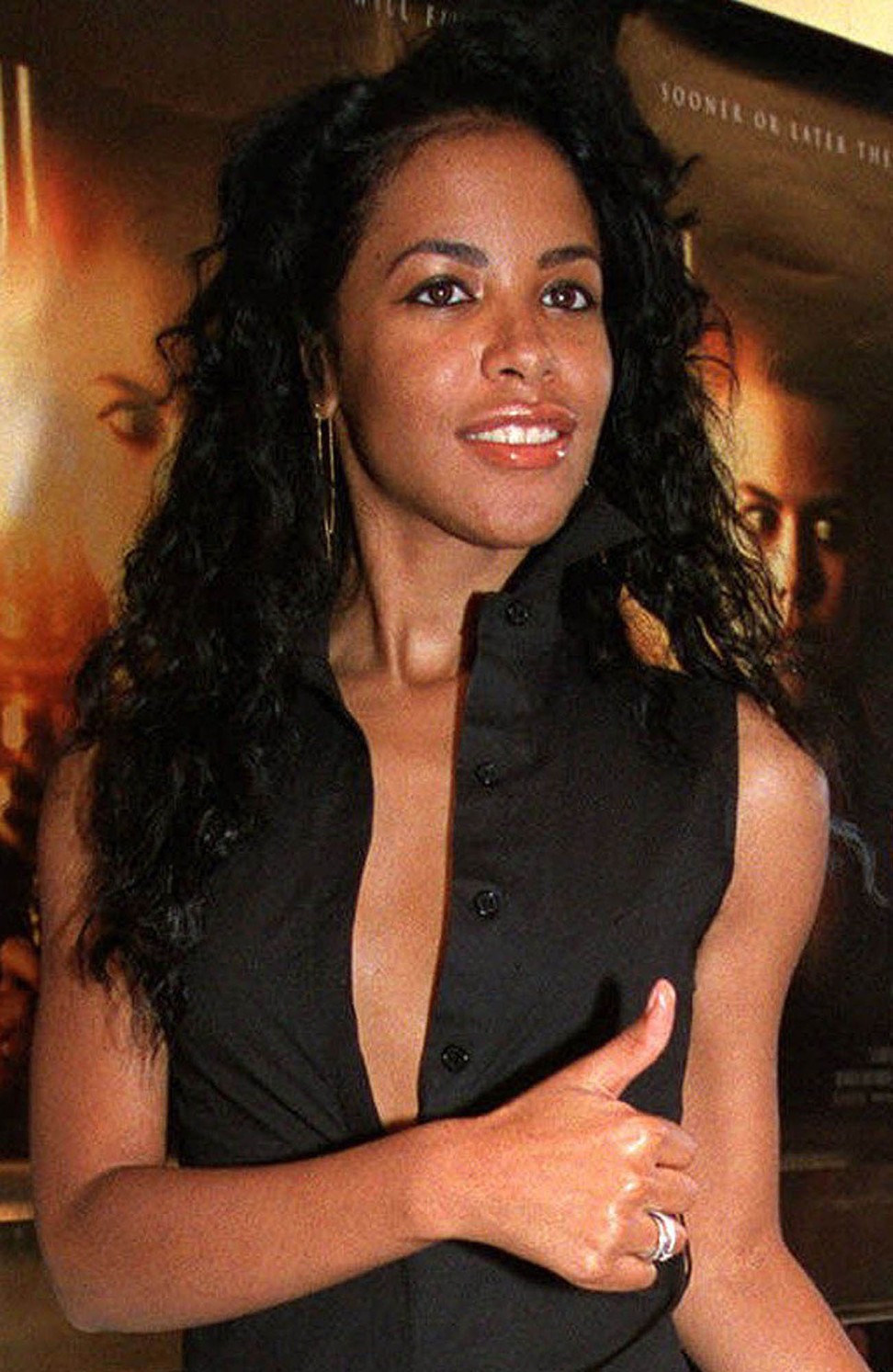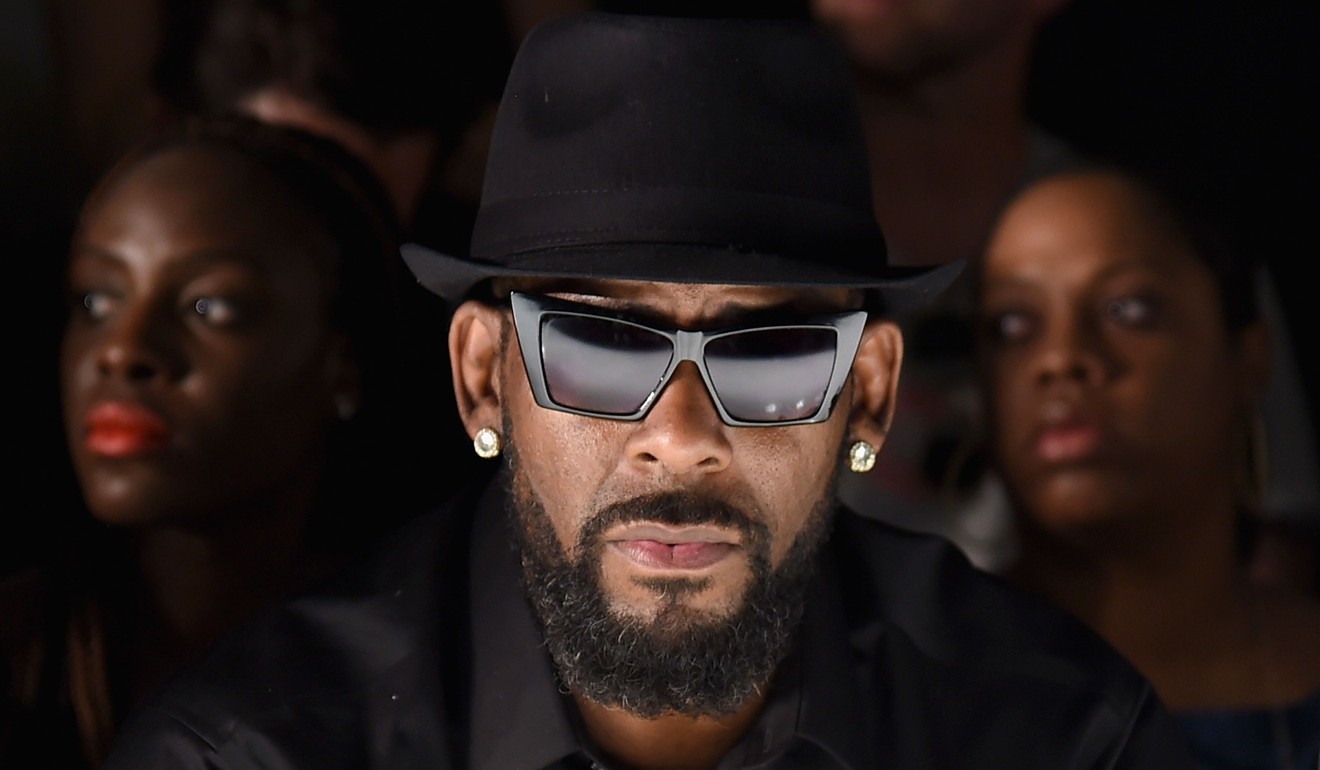
R&B singer R. Kelly’s sex abuse allegations show how money and fame can buy apparent impunity
- The singer secretly married singer Aaliyah when she was 15 and reached at least five settlements with women over sexual-misconduct or domestic-violence allegations
- Organisers of the #MuteRKelly campaign say: ‘Radio spins = Club spins = Concert bookings = Cash to pay for his crimes’
If you’re a socially engaged consumer, the past year of pop culture might have left you despairing over how to spend your money ethically.
Do you forgo buying Yeezys to protest Kanye West’s dalliance with US President Donald Trump? And given the range of behaviours that have prompted #MeToo revelations, how should audiences distinguish among Aziz Ansari’s Master of None, Louis C.K.’s comedy and Harvey Weinstein-produced film? It would be easy to default back to separating the art from the artist, simply to avoid being overwhelmed, or because you feel boycotted-out.
R. Kelly accused of grooming 14-year-old girl as sex ‘pet’
But if you’re looking for the definition of a worthy case for a boycott, you’ll find it in the Surviving R. Kellytelevision miniseries, which concluded last weekend, and the long-running #MuteRKelly campaign. The R&B singer has become a prime example of how wealth can buy apparent impunity.
He secretly married the singer Aaliyah when she was 15; was tried, though not convicted, on child pornography charges; reached at least five settlements with women over sexual-misconduct or domestic-violence allegations; and in 2017 was accused of running a coercive sex cult by the mothers of some of the women who were in relationships with him. Throughout, he has maintained his innocence, even in a recent, 19-minute track titled I Admit.

It’s one thing to have some portion of a ticket sale go to an artist you disagree with politically, and another thing to know that the money you’re spending on art may well be underwriting misconduct. The organisers of the #MuteRKelly pressure campaign put it even more bluntly: “Radio spins = Club spins = Concert bookings = Cash to pay for his crimes.”
Taken individually, confidential settlements reached with his alleged victims may seem reasonable. The victims are compensated for their pain and suffering and don’t have to go through emotionally and financially draining trials to obtain some measure of justice, even if they can’t be assured that the people who allegedly abused them will be exposed and go to jail. But the #MeToo movement has revealed the extent to which confidential settlements can be something more sinister: a tool that enables serial sexual malefactors to keep offending.
We know now that film producer Harvey Weinstein, former Fox News anchor Bill O’Reilly and USA Gymnastics, among others, all made financial settlements with victims of sexual misconduct. Women such as model Ambra Battilana Gutierrez, Fox News analyst Lis Wiehl and Olympic gold medallist McKayla Maroney received money, but it was sums that the people and the organisations who harmed them could afford to pay.

In exchange, Weinstein, O’Reilly and USA Gymnastics got to preserve their reputations. In Weinstein’s case, that allegedly meant he could continue to use his position of influence in the film industry to lure the women eager for substantive film roles who became his victims. It meant that Fox News could sign O’Reilly to a lucrative new contract, confident that the accusations he’d paid to erase would stay under wraps.
Judge refuses to dismiss sex assault charges against Harvey Weinstein
Kelly made use of financial settlements, too. One victim, Tracy Sampson, said that as part of her settlement with Kelly, the lawyers involved obscured the age at which her sexual relationship with the singer began, making it appear that she had not been a minor at the time. Jerhonda Pace, who also appears in Surviving R. Kelly, was such a fan that she went to see Kelly’s trial on child pornography charges. Pace and Kelly later reached a settlement after he allegedly physically abused her; Kelly’s former business manager, Derrel McDavid, threatened to sue her for violating the confidentiality clause of the settlement.
Many will be appalled by these settlements – and also hate to think that they might have contributed towards them. Considered in that light, deciding whether to boycott an individual or organisation is much easier. Just ask yourself: can I live with how this person is going to use my money?

